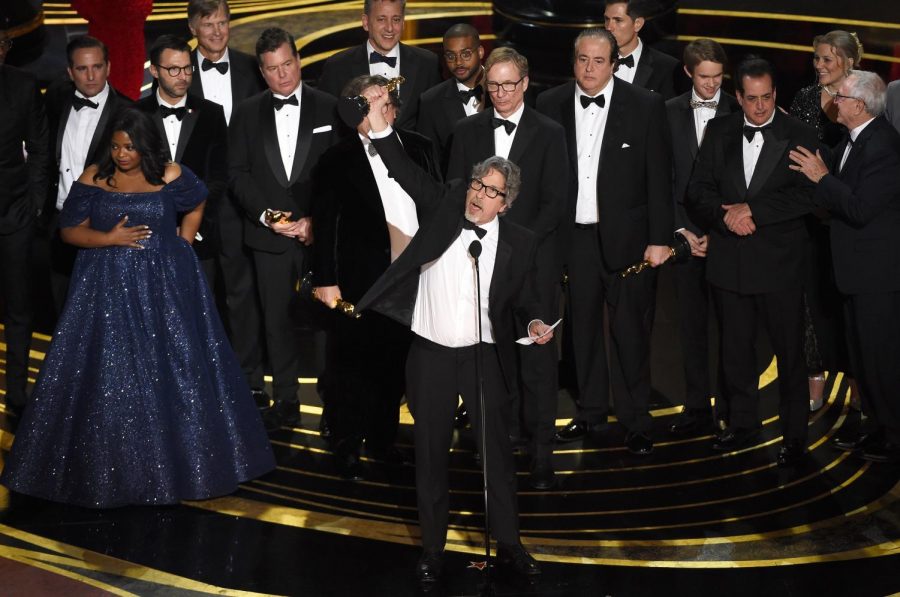The Problems with the Oscars
April 14, 2021
Running for 93 years, the Oscars are considered to be the most prestigious award ceremony in Hollywood and despite the Coronavirus pausing the entire entertainment industry, the Academy will hold a socially distanced Oscars this year on April 25th. For those who don’t know, the Academy Award nominations are decided by a voting board of around a thousand people. It is a board that has shown it values the amount of “For Your Consideration” gift baskets it receives over the quality of well crafted cinema that comes out each year. If one was looking for a guide to what films they should see, the Oscars would be a poor source due to their many biases.
Despite their widespread popularity, the Academy Awards often take no risks in the films they select as they show a bias towards more safe and formulaic picks such as bland biopics and generic films about race relations (usually written by white people.) In doing so, The Academy deprives creative independent films of a larger audience that they deserve. Unlike larger studio productions like Bohemian Rhapsody, independent movies such as The Farewell, Waves and You Were Never Really Here don’t have the resources to put into marketing campaigns, which are essential to being recognized by the Oscars. Sometimes a low budget film such as Roma or Nomadland are able to break through these barriers due to backing from companies like Netflix and Searchlight Pictures. Previous Oscar winners attached to these films like Frances McDormand and Alfonso Cuaron also probably helped the odds of these films getting nominated. Without these factors, an independent film will rarely get more than a few nominations, if any.
A film’s genre is another huge factor which determines whether the Academy will acknowledge a film or not. Drama films are often the only types of films nominated for Best Picture. Genres like comedy and horror are often shafted by the Oscars.
Horror in particular has been overlooked these past few years despite a resurgence in challenging psychological horror films such as The VVitch , Hereditary and Us. The aforementioned films were critically acclaimed enough to generate “award show buzz” particularly for their strong lead performances. Yet none of them received a single nomination come Oscar announcements.
The Academy’s biases were further confirmed in 2019, when The New York Post interviewed several voters about why the lauded performances of Adam Sandler in Uncut Gems and Awkwafina in The Farewell might have been snubbed.
“There are a lot of movies, a lot of performances per year for us to watch. Unfortunately, actors become brands. Sandler’s brand doesn’t scream ‘Oscar,’ but Leo DiCaprio’s and Jonathan Pryce’s do,” one voter stated.
Regarding Awkwafina, the voter admitted that many voters may not even have bothered to see The Farewell.
One might argue that due to the small status of some movies in the eyes of mainstream audiences, the Oscars shouldn’t have to reflect them. However, if the Oscars are meant to reflect the films that are the highest in quality then shouldn’t it be irrelevant if a film is backed by “Oscar brand actors” or not? This excuse is not helped by the Academy’s terrible track record when it comes to including people who aren’t white men.
The Academy rarely cares for stories told by people of color. Ninety-nine percent of Best Director winners have been white men, leaving very little room for marginalized voices. Yes, the Academy has made strides to add a more diverse roster of people to their voting branches and, yes, this year’s nominations are the most diverse of any in Oscar history with two women nominated for Best Director (one of them being Chinese) and a total of nine nominations for people of color in the acting categories, yet this victory doesn’t mean the Academy has completely turned a new leaf.
Freelance film critic Robert Daniels sums up the issue well in an article for RogerEbert.com by questioning why there is only one black led film nominated for best picture and no African American nominees for Best Director, despite supposed change. Daniels notes
“Considering the soul-searching white people supposedly did over the summer, shouldn’t more than one Black movie have received recognition for the ceremony’s two biggest prizes? Shouldn’t Black women like Regina King and Radha Blank who earned recognition from the DGA (Directors Guild of America) for their debut features break through?”
He laments that perhaps representation in the Oscars voting boards won’t fix the system as a whole. Despite their occasional attempts at fixing their diversity issue, the Academy has never had an African American Best Director winner despite a rise in black voices such as Steve McQueen, Ava DuVernay, Dee Rees and Barry Jenkins. Daniels’s point is that while an African American person will probably win best Director someday, the Academy’s system is irreparable despite any attempts to do so.
The Oscars are not the best place to turn to when looking for the best films of the year. If one is looking for a less biased, more intelligent and hopefully more diverse roster of great films, then they should turn to different sources such as handpicked lists from critics they trust.






